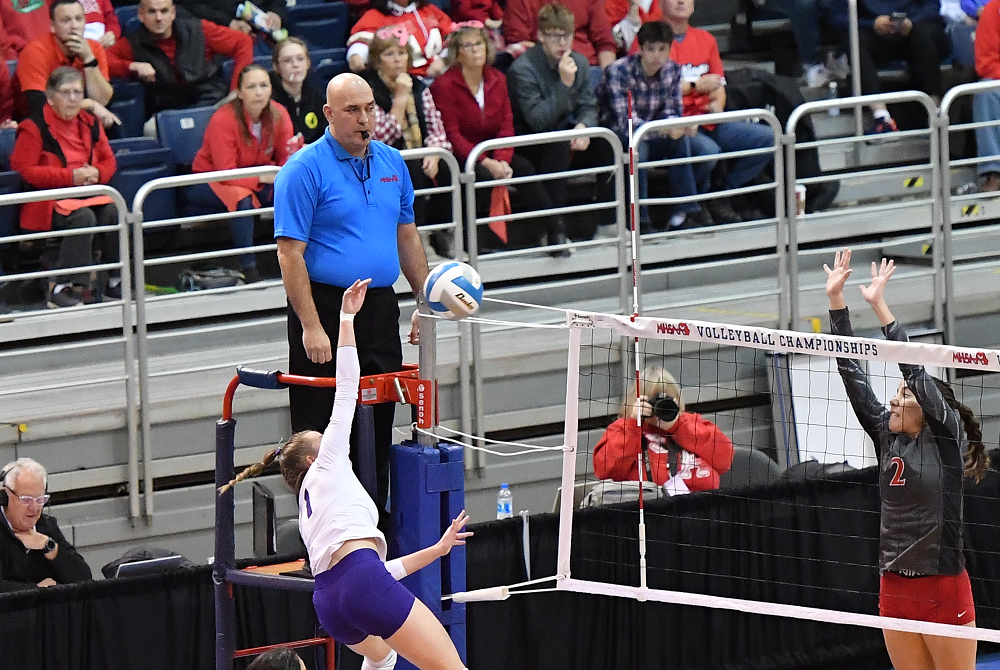
Be the Referee: Toe the Line on PKs
October 15, 2020
This week, MHSAA officials coordinator Sam Davis explains a change in soccer affecting goalkeeper movement during penalty kicks.
Be The Referee is a series of short messages designed to help educate people on the rules of different sports, to help them better understand the art of officiating, and to recruit officials.
Below is this week's segment - Toe the Line on Penalty Kicks - Listen
Here’s a high school soccer rules change for the upcoming season. Rules for the placement and movement of the goalkeeper on a penalty kick have been rewritten to make it more clear what a keeper can or cannot do.
As in previous years, goalkeepers can move laterally along the goal line prior to the taking of the penalty kick. But new this year, goalkeepers need only have one foot on (or in-line) with the goal line at the time of the kick.
This allows keepers to lunge before the ball is kicked, as long as one foot stays on the line. Previously, the goalie needed to keep both feet on the goal line or in line.
Past editions
10/8: Disconcerting Acts - Listen
10/1: Ball Hits Soccer Referee - Listen
9/24: Clocking the Ball from the Shotgun - Listen

Be the Referee: Registration Process
By
Sam Davis
MHSAA Director of Officials
September 26, 2023
Be The Referee is a series of short messages designed to help educate people on the rules of different sports, to help them better understand the art of officiating, and to recruit officials.
Below is this week's segment – Registration Process - Listen
We talk a lot about the need for registered officials. But how do you sign up? What does it take to become a referee, umpire, or judge?
The steps are simple. Go to MHSAA.com to the “Officials” tab and identify the sport or sports you are interested in. Next, complete the MHSAA Principals of Officiating and the Officials Guidebook Exams.
The Officials Guidebook covers basic elements and procedures for becoming a sports official. This first step of the process covers playing rules, ejection protocols, game assignments, and payment of game fees.
Once you pass the exams, it’s time to connect with a locally-approved officials association. The local associations are the ones that provide the training – whether it’s on the court, on the field, on the mats, or video training – to get that person completely immersed in the rules, mechanics, and coverages of what it takes to become a good official.
Previous Editions
Sept. 20: Animal Interference - Listen
Sept. 13: Feet Rule on Soccer Throw-In - Listen
Sept. 6: Volleyball Jewelry - Listen
Aug. 30: Football Rules Similarities - Listen
Aug. 23: Football Rules Differences - Listen
(PHOTO by Gary Shook.)

